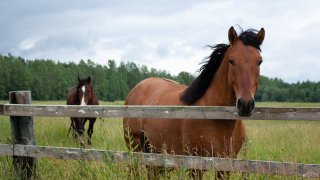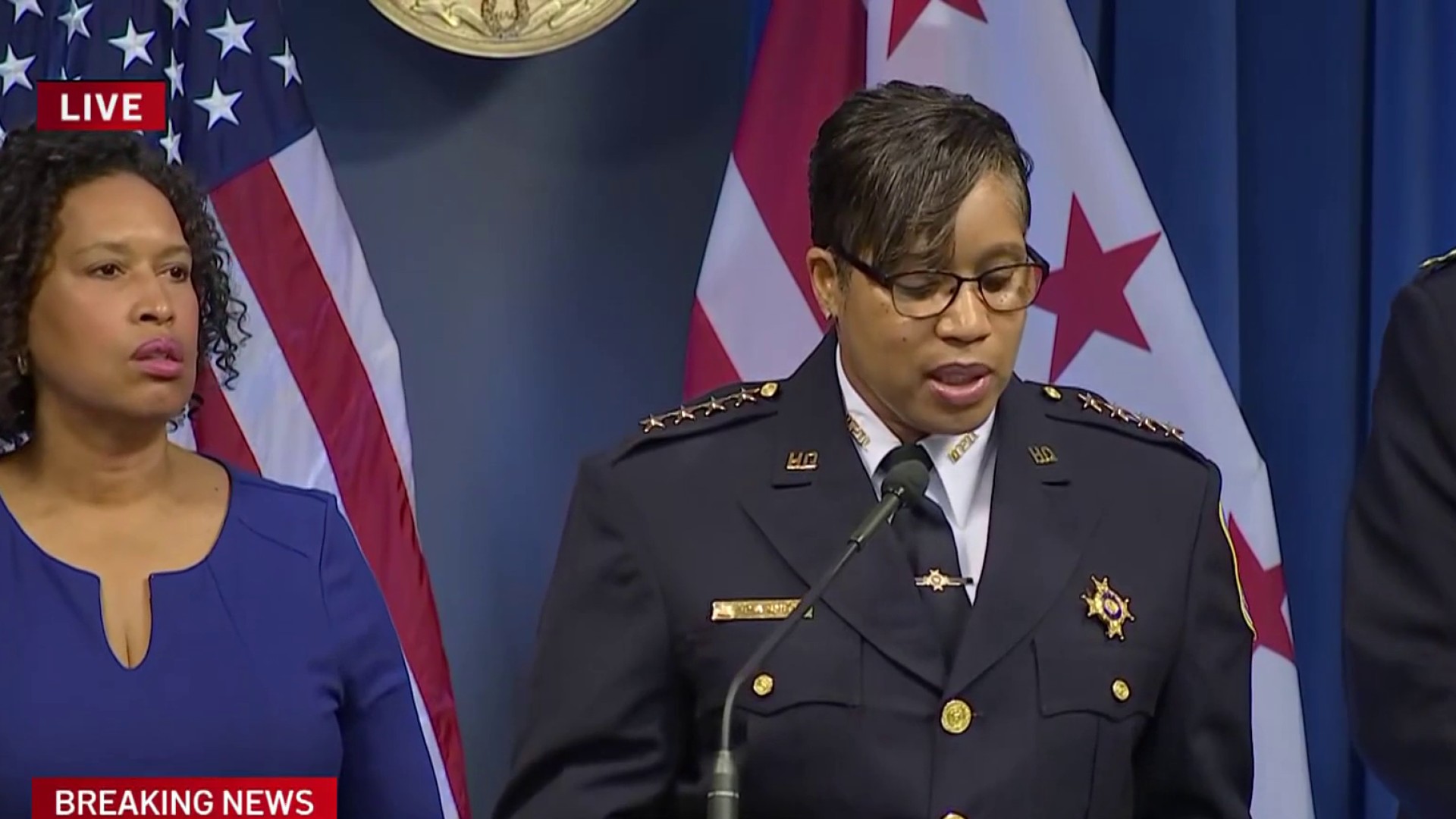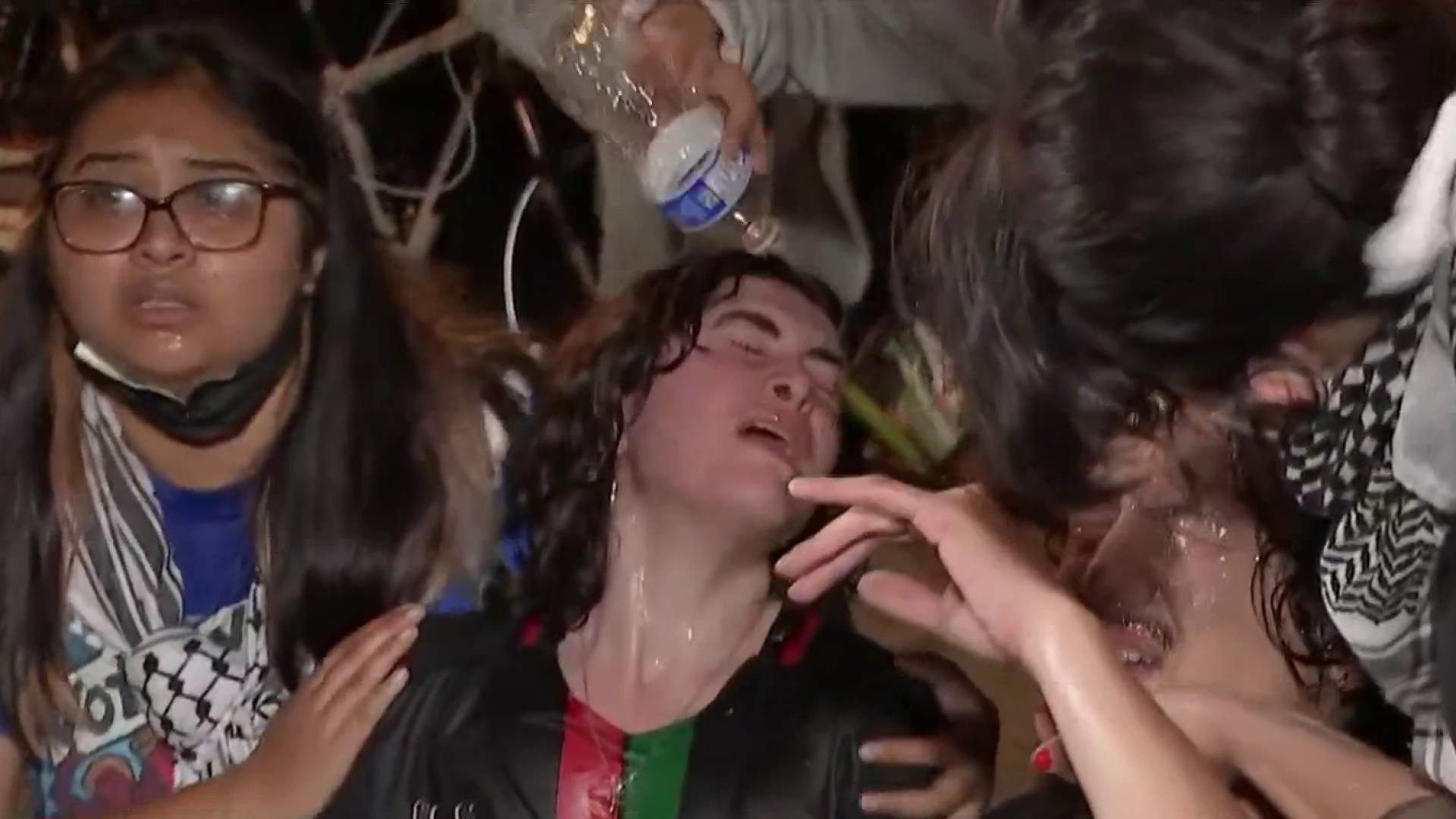
Sally Lechner didn’t grow up around horses, but when her sister came to visit from Colorado, they decided to go horseback riding together.
They tried and failed to find a stable while her sister was in town. Lechner said farewell, but sent her sister home with a pamphlet on Maryland horseback riding. Her sister later spotted a name, Gentle Giants Draft Horse Rescue, in Mt. Airy. It’s about 60 miles from where Lechner lives in the Annapolis area, but she decided to check it out.
The rolling hills of green dotted with horses is where she fell in love with the rescue.
“I love it here. Everything about this place is wonderful,” she said. “In freezing cold, it’s magic. In the sweat of summer, it is magic. The horses are so majestic, they’re so beautiful.”
We're making it easier for you to find stories that matter with our new newsletter — The 4Front. Sign up here and get news that is important for you to your inbox.
Lechner is retired from 30 years of teaching special education and usually makes the trek to Mt. Airy three times a week to spend her time giving back to animals.
As Lechner described her experience, a white Andalusian named Bellisima stretched her neck out from a stall, seemingly looking for attention. Lechner reached over and gave her a scratch. White hairs flew from her coat and stuck to Lechner’s shirt.
She’s been volunteering for a little over a year now for the nonprofit that focuses on rescuing some of the biggest—and often the gentlest—of horse breeds.
Local
Washington, D.C., Maryland and Virginia local news, events and information
Founder and Executive Director Christine Hajek likes to say draft horses are the biggest and best of horses, but there’s a greater reason why their organization focuses on this breed.
“While draft horses are a very small minority of the population percentage wise, they’re grossly overrepresented in the number of horses who are being sent to slaughter,” Hajek said. “It’s because they’re cheap, they’re huge and they’re meaty.”
As of early May, the rescue had about 120 equine between their roughly 400 acres in Mt. Airy and Woodbine.
Their rescues largely come from auctions, Hajek said, where horses can be sold to people who don’t have their best interests at heart. Some horses come from animal control and others are surrendered by owners who hope the rescue can give them the best chance at life, according to Hajek.
One of those owner-surrendered horses is a bay-colored horse named Harlem. This Belgian Percheron cross, standing about 17 hands tall, was once a New York City carriage horse. Hajek said his owner offered him to Gentle Giants because he was diagnosed with a serious hoof disease called canker. It’s at times tricky to treat and can be fatal, according to Hajek.
Gentle Giants has become known in the horse community for successfully treating canker, Hajek said, and they were able to save Harlem. He’s been in remission for about a year and a half.
But Harlem is doing more than surviving. In fact, he’s probably one of the better-known horses at the rescue. He serves as an ambassador for Gentle Giants and goes out into the community for events. Not every horse’s personality is suited for the ambassador life, Hajek noted, but Harlem is used to being around people and cameras from his time in the big city.
“They either have the desire to do it or they don’t,” Hajek said of the horses.
Ambassador horses go to places such as nursing homes, club meetings and parades. When they attend events, it helps raise awareness about the rescue and build relationships with the community.
“You can just see people soften and relax,” said Adria Strausbaugh, community outreach director. It’s almost spiritual.
“Anytime that we get a chance that we can take a few horses out to show that, it’s really special.”
At nursing homes, Hajek’s been surprised to learn how many residents are former riders.
“A couple of the residents who were bedridden even asked their nurses to … roll their whole entire bed outside so they could see the horses,” Hajek said of a recent visit.
Gentle Giants relies on donations and volunteers to keep going. About 38% of its 160-plus volunteers are 50 or older, according to Strausbaugh.
“After you’re done with your career, people still want something to do,” she said.
“They still want a purpose and to be able to use their time and have it be valuable, and this is a great way to do that.”
When the pandemic struck and they couldn’t have volunteers, Hajek said the workload was tough on their staff of about 26. Some volunteers, like Lechner, come frequently, and others come once in a while, depending on their availability.
Hajek wants potential volunteers to know they don’t need to be young and fit to donate their time.
“I think sometimes older volunteers fail to realize that … not only do we have volunteer opportunities for them, but that we’re really an amazing fit,” Hajek said. “We do have some young whippersnappers, but not many.”
She said they’ll work with the volunteer to find tasks that align with their abilities.
“You’re only asked to do what you’re ready to do,” Lechner said.
Those interested in volunteering can email volunteers@gentlegiantsdrafthorserescue.org or call 443-285-3835 and ask for Adria Strausbaugh.
The nonprofit welcomes donations as well as sponsors.
Learn more at gentlegiantsdrafthorserescue.org.



